Hundreds of pupils off school on second day of bus strike
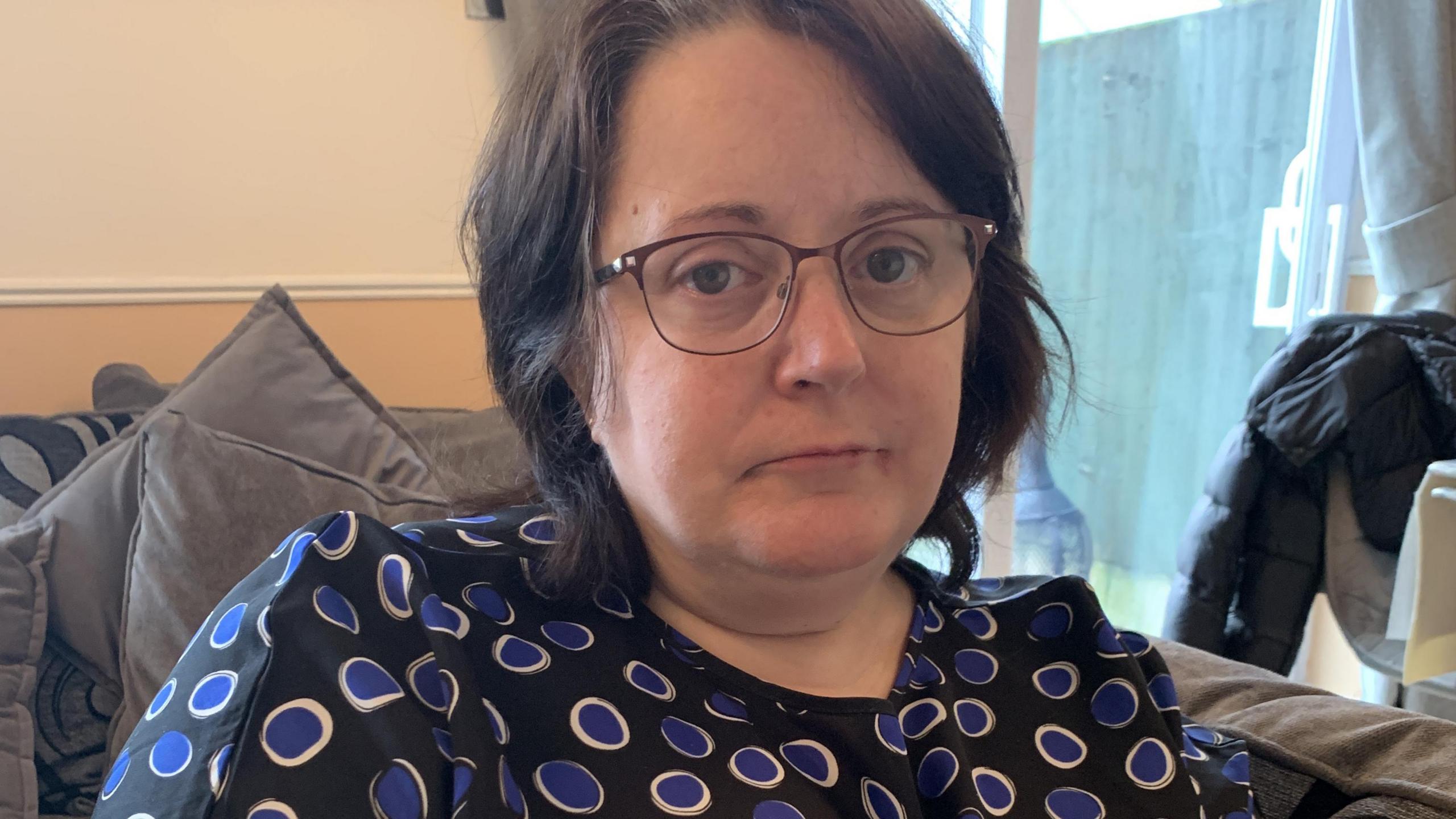
Kerry Bradley paid £55 for taxis on the first day of the strike
At a glance
Bus passengers have faced a second day of strike disruption amid drivers' pay row
One school had hundreds of pupils working from home
A family said it paid £55 in taxi fares to get to and from work
National Express West Midlands normally carries about 600,000 passengers each day
The company and the Unite union both say they want to find a solution to the strike
- Published
Hundreds of school pupils have worked from home as a bus strike enters its second day, also disrupting commuters' work journeys.
National Express West Midlands drivers began their walkout on Monday.
One Birmingham school said a third of its pupils had to work from home, while one family complained it had to pay £55 in taxi fares to get to and from work.
The walkout follows a pay row between the company and members of the union Unite which says the action is continuing indefinitely, adding workers are willing to compromise. The company says it wants to resolve the strike.
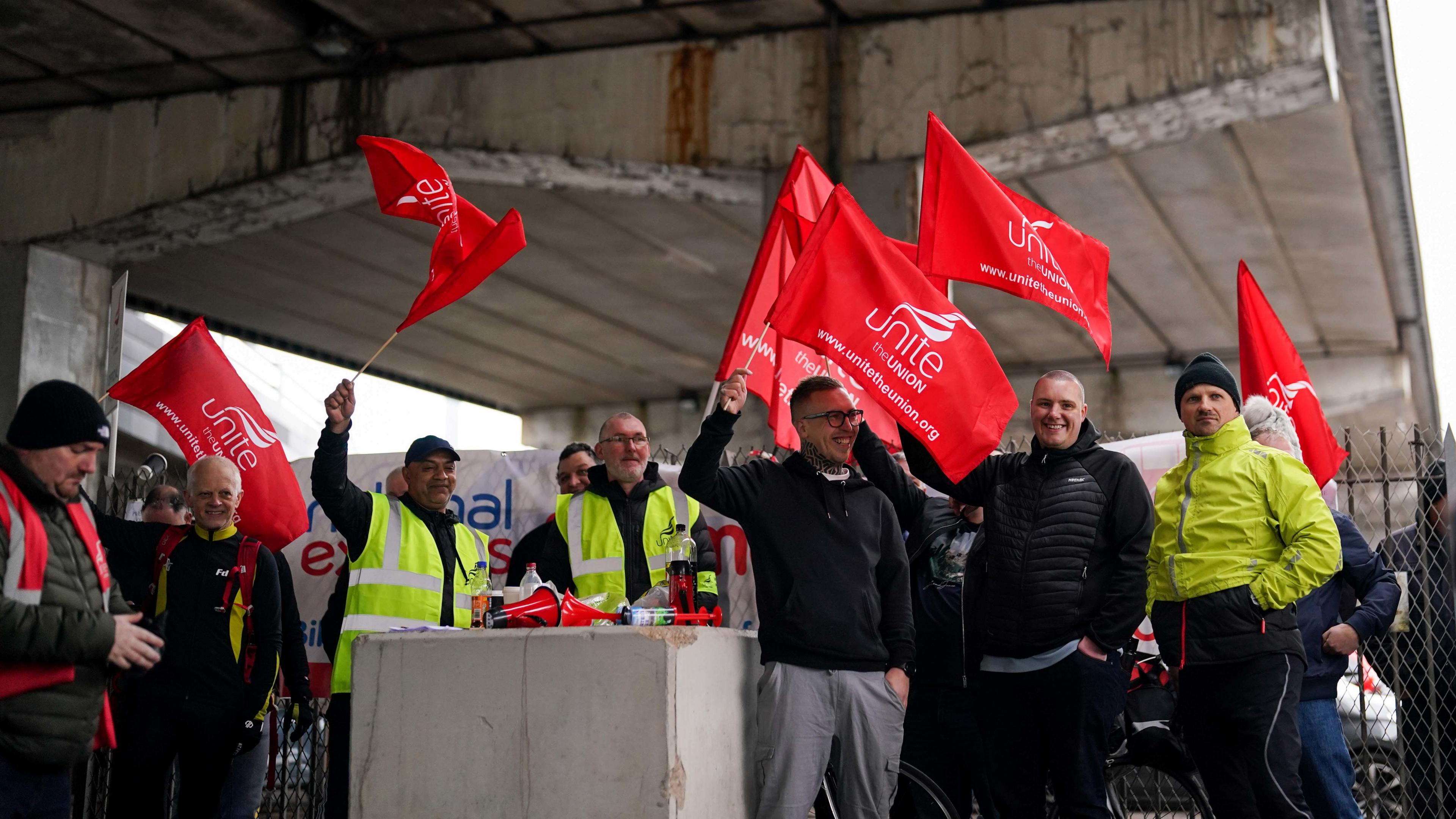
National Express bus drivers in the Unite union began their strike on Monday
The bus firm has apologised for the disruption and has urged customers not to travel unless they have to.
Headteacher Simon Bird said on Tuesday that 360 pupils had been unable to make it to Handsworth Grammar School - the equivalent of two year groups.
He said the industrial action combined with Covid, the recent bad weather and the teachers' strike had all made for a negative effect on continuity for pupils.
Meanwhile, Bilston resident Kerry Bradley said she and her daughter normally used buses to get to work but on Monday paid £55 between them for three taxi journeys.
Mrs Bradley, a GP surgery worker who said she could not work from home, added that she feared a weekly combined taxi bill of more than £250.
"You get to the point of thinking 'where is the money going to come from and what are we going to do'?" she said.
A truncated bus service is currently in operation, mainly on routes serving major hospitals.
Jackie, a blind single parent from Kingstanding, Birmingham, said getting her son to school meant relying on other people to drive him.
The Covid-19 pandemic affected his GCSE studies and, with A-Level mock exams next week, she said she was concerned about his education.
"It is stressing him out, it is a big worry. Having to rely on other people to get him to school, we are living from day to day and we are only in day two," she said.
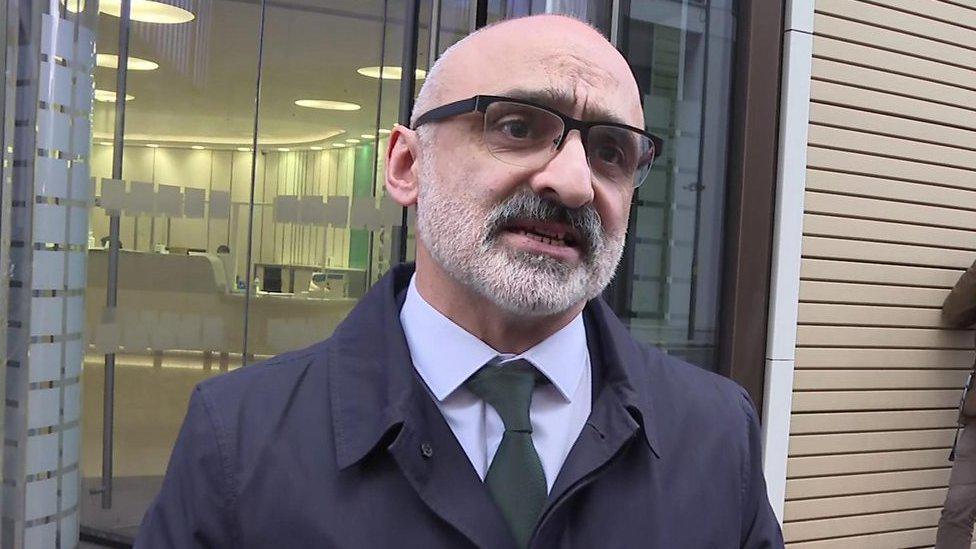
Unite's Onay Kasab said the union was willing to compromise
National Express said an offer to drivers of a 14.3% pay increase remained on the table which would see an average driver earn almost £33,000 in Birmingham and the Black Country, and £34,000 in Coventry.
But Onay Kasab, from Unite, said while the pay rise might sound a lot, the starting salary for drivers with the company was £11.80 an hour.
"When your pay is low to start with, then 14% may not in reality be as big as it sounds," he said. "Historically there has been low pay among this group."
Also affected was Matthew Evans, who was made homeless earlier this year and lives in shared accommodation in Arden, near Solihull.
He said he was unable to afford alternative transport and the strike had left him stranded.
"I rely on the buses and I think the pay deal they were offered, from what I heard, was a good deal so I am a bit frustrated about it," he said.
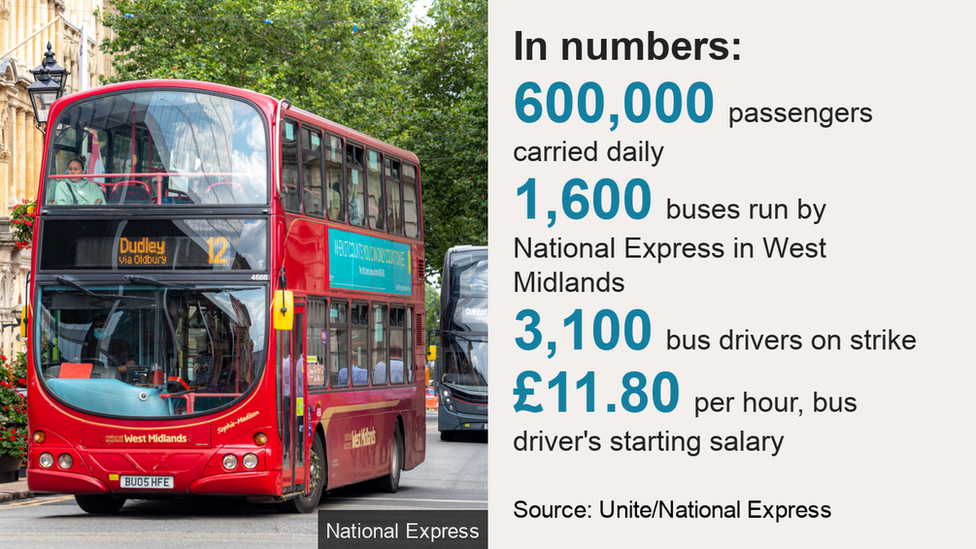
Stacie Feehan, from Pendeford, Wolverhampton, said while the strike had affected her family's routine, she supported the drivers who were "entitled to fair pay".
She said the walkout had left her, as the only driver in her family of six, having to take her husband to work and then her children to school.
Karen Hughes, from Willenhall, Coventry, borrowed money from her father to buy her husband a bike so he could get to work.
"[The strike is] just leaving people stranded. Yes there are taxis for people who can afford it but for others, money is really tight."
Passengers are advised to check the National Express website for routes and running times.
National Express West Midlands' coach division is not affected.
Follow BBC West Midlands on Facebook, external, Twitter, external and Instagram, external. Send your story ideas to: newsonline.westmidlands@bbc.co.uk, external
- Published20 March 2023
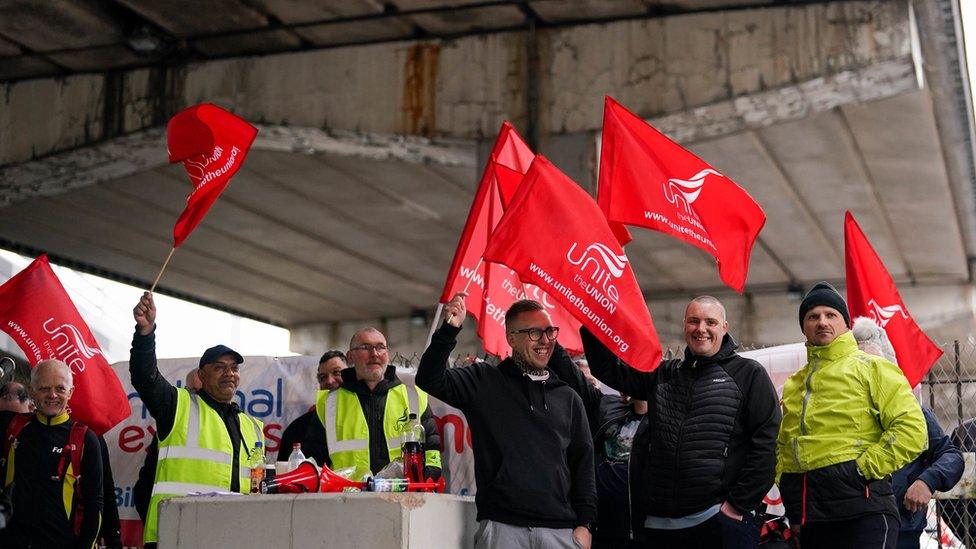
- Published16 March 2023
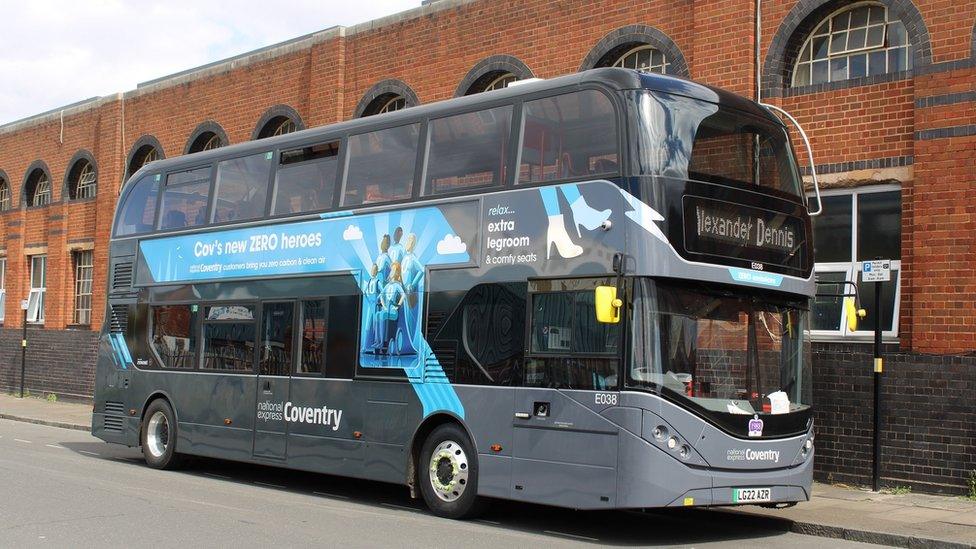
- Published17 March 2023
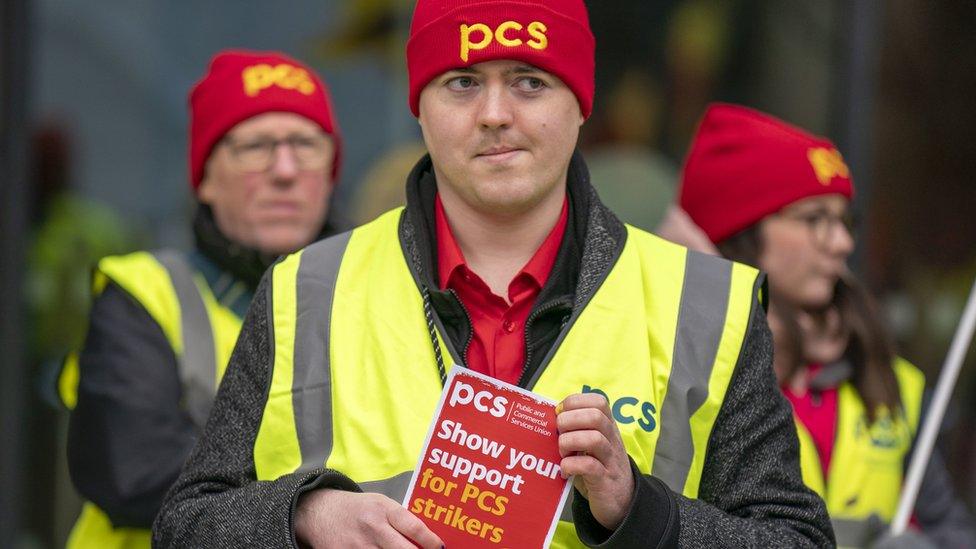
- Published1 August 2023
